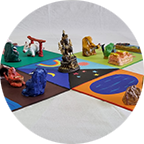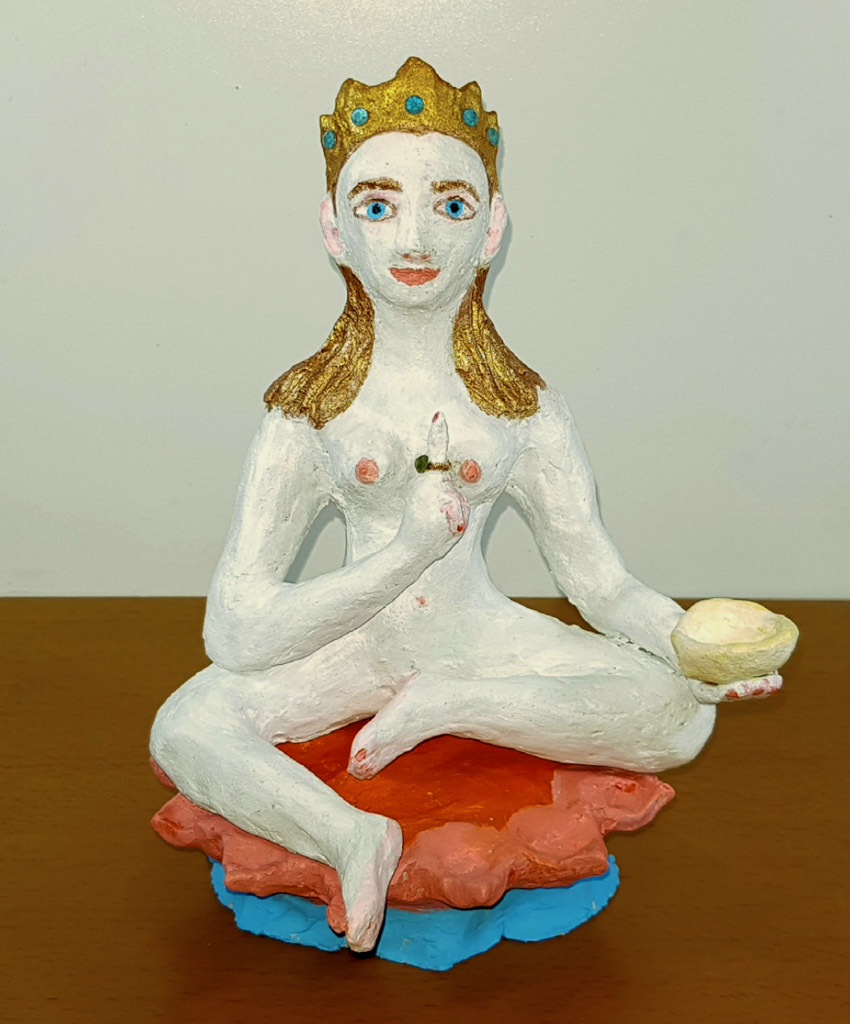Retelling: Vova Pyatsky and Smadar Pyatsky (based on the translations of the suttas published on Theravada.ru and SuttaCentral.net)
Russian Version: Анумана сутта, Самоисследование, Мадджхима Никая 15 | Три Ваджры
Translation to English: Roni Sherman and Marina Sherman
Introduction
Venerable Mahamogallana (one of the senior disciples of the Buddha), while having a conversation with fellow monks, explained to them that self-inquiry is needed to correctly perceive criticism. When a disciple does not investigate their flaws, they are not happy with criticism, and take it with resentment, offence, and aversion.
A way of investigating our own flaws
Since it is hard to investigate our own flaws, we must first think about “what are the bad qualities of other beings that cause us aversion and hostility?” Then we must conclude: “After all, I too, when I show such qualities, cause aversion and hostility towards myself in other beings. Therefore I'll renounce those qualities!”
A list of behavioral flaws which must be investigated
– Having vicious desires and indulging in them.
– Praising oneself and belittling others
– Anger, resentment, stubbornness. Rude, sarcastic speech.
– Tendency to reject criticism through stubbornness, slander, reciprocal reproach to the one criticising, lies, prevarication, anger and resentment.
– Envy, greed, stinginess
– Clinging to habitual ignorant views
The joy of discarding vices
Mahamogallana compares the joy which arises from discarding vicious qualities to the joy experienced by a young and beautiful girl who, seeing a trace of dirt on her face in the mirror, wipes the dirt off, and her face becomes clean and beautiful again.
Author
Retelling: Vova Pyatsky and Smadar Pyatsky (based on the translations of the suttas published on Theravada.ru and SuttaCentral.net)
Russian Version: Анумана сутта, Самоисследование, Мадджхима Никая 15 | Три Ваджры
Translation to English: Roni Sherman and Marina Sherman
Introduction
Venerable Mahamogallana (one of the senior disciples of the Buddha), while having a conversation with fellow monks, explained to them that self-inquiry is needed to correctly perceive criticism. When a disciple does not investigate their flaws, they are not happy with criticism, and take it with resentment, offence, and aversion.
A way of investigating our own flaws
Since it is hard to investigate our own flaws, we must first think about “what are the bad qualities of other beings that cause us aversion and hostility?” Then we must conclude: “After all, I too, when I show such qualities, cause aversion and hostility towards myself in other beings. Therefore I'll renounce those qualities!”
A list of behavioral flaws which must be investigated
– Having vicious desires and indulging in them.
– Praising oneself and belittling others
– Anger, resentment, stubbornness. Rude, sarcastic speech.
– Tendency to reject criticism through stubbornness, slander, reciprocal reproach to the one criticising, lies, prevarication, anger and resentment.
– Envy, greed, stinginess
– Clinging to habitual ignorant views
The joy of discarding vices
Mahamogallana compares the joy which arises from discarding vicious qualities to the joy experienced by a young and beautiful girl who, seeing a trace of dirt on her face in the mirror, wipes the dirt off, and her face becomes clean and beautiful again.

